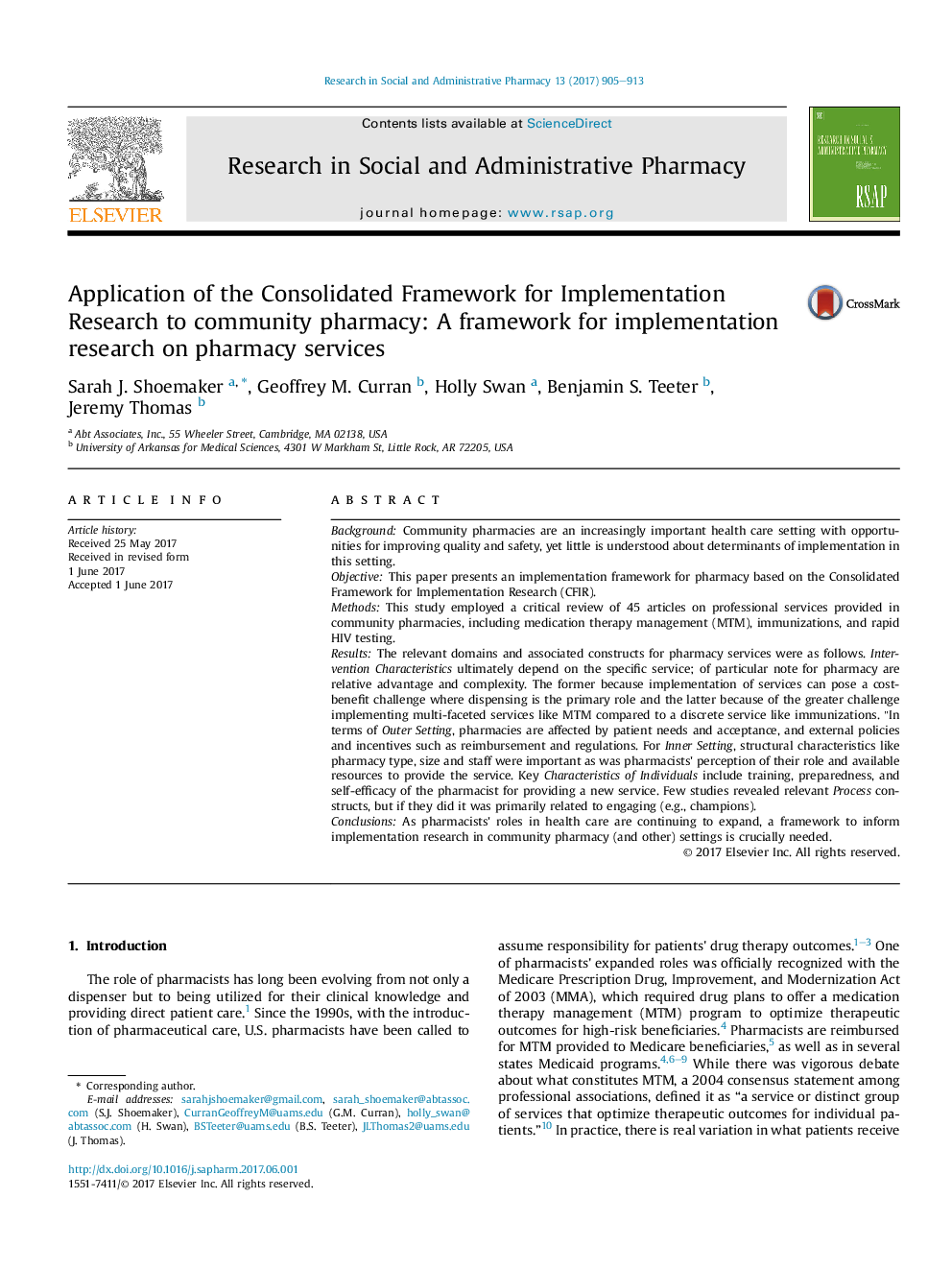| Article ID | Journal | Published Year | Pages | File Type |
|---|---|---|---|---|
| 5551166 | Research in Social and Administrative Pharmacy | 2017 | 9 Pages |
BackgroundCommunity pharmacies are an increasingly important health care setting with opportunities for improving quality and safety, yet little is understood about determinants of implementation in this setting.ObjectiveThis paper presents an implementation framework for pharmacy based on the Consolidated Framework for Implementation Research (CFIR).MethodsThis study employed a critical review of 45 articles on professional services provided in community pharmacies, including medication therapy management (MTM), immunizations, and rapid HIV testing.ResultsThe relevant domains and associated constructs for pharmacy services were as follows. Intervention Characteristics ultimately depend on the specific service; of particular note for pharmacy are relative advantage and complexity. The former because implementation of services can pose a cost-benefit challenge where dispensing is the primary role and the latter because of the greater challenge implementing multi-faceted services like MTM compared to a discrete service like immunizations. "In terms of Outer Setting, pharmacies are affected by patient needs and acceptance, and external policies and incentives such as reimbursement and regulations. For Inner Setting, structural characteristics like pharmacy type, size and staff were important as was pharmacists' perception of their role and available resources to provide the service. Key Characteristics of Individuals include training, preparedness, and self-efficacy of the pharmacist for providing a new service. Few studies revealed relevant Process constructs, but if they did it was primarily related to engaging (e.g., champions).ConclusionsAs pharmacists' roles in health care are continuing to expand, a framework to inform implementation research in community pharmacy (and other) settings is crucially needed.
